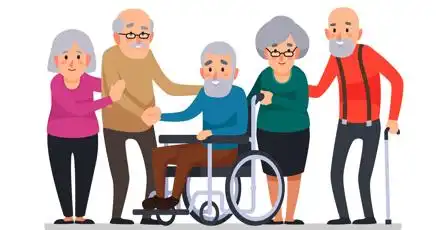Aging gracefully: How to change your mindset about getting older
Psychotherapist Connie Zweig's encounter with her own ageism led her to explore the inner ageist and embrace the aging process.
Connie Zweig's inner ageist made its presence known to her on a sunny day in Santa Monica seven years ago. While enjoying a meal at her favorite vegan restaurant, Real Food Daily, she observed an elderly woman with unkempt hair and tattered clothes ordering free samples of food. Zweig noticed a sense of disgust rising within her, prompting her to think, "I'll never be like that. I feel sorry for her."
Upon realizing this thought, Zweig was taken aback and recognized that she had her own ageist part within her, despite her years of helping others confront their unconscious minds. She delved into a years-long exploration of the inner ageist and its internalized biases, leading her to write "The Inner Work of Age: Shifting From Role to Soul."
Zweig believes that implicit bias requires both social justice action and "shadow work" to uproot unconscious internal images and attitudes like the inner ageist. She emphasizes that our unconscious beliefs and biases about age shape how we experience it, but that these beliefs can change.
When asked where to start in reorienting how we feel about aging, Zweig suggests catching the inner dialogue that arises when we encounter older individuals, noticing the impact it has on us emotionally, socially, and in terms of health and relationships. She also addresses the fear of aging, acknowledging that grief and loss are inherent parts of the aging process, but that awareness of limited time can lead to a prioritization of what is important.
Regarding the expensive battle against the physical signs of aging, Zweig explains that if our identity is rooted in how we look or what we do, we will do everything to maintain that image. She also highlights the negative portrayals of older adults in the media and the importance of positive influences as an antidote.
Zweig also touches on the role of dark humor in expressing implicit biases, citing Hallmark and birthday cards that use ageism as a source of humor.
As a woman in her 70s, Zweig shares her own experience of accepting her age, emphasizing that the journey looks different for everyone. She expresses a desire for a different pace, more time for spiritual practice, and a willingness to step into the unknown to discover what calls to her next.











Comments on Aging gracefully: How to change your mindset about getting older